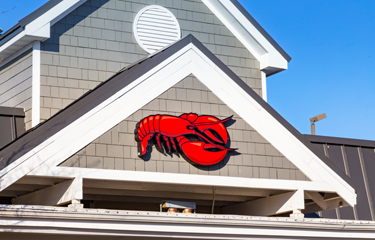A consortium that includes Red Lobster’s major investor, Thai Union Group, has acquired the struggling seafood restaurant chain.
Golden Gate Capital has agreed to sell its remaining equity stake in Red Lobster to a group comprised of Thai Union, Red Lobster management, and an investor group by the name of Seafood Alliance, the companies said in a press release.
“This transaction represents a deepening of Thai Union's commitment to Red Lobster,” the group said.
Thai Union, which made a USD 575 million (EUR 481 million) strategic investment in Red Lobster is 2016, is committed to assisting Red Lobster with a potential refinancing of its loans, Thai Union Chief Financial Officer Joerg Ayrle said on a recent investor call.
Thai Union is also exploring reduced rent from landlords and potentially closing some locations after the restaurant chain posted a USD 18.4 million (THB 579 million, EUR 15.6 million) loss in the fourth quarter.
The new Seafood Alliance investor group is comprised of Paul Kenny and Rit Thirakomen, who have a collective 75 years of experience in restaurant industry strategy, operations, and brand building. Kenny is the former CEO of Minor Food, one of Asia's largest casual dining and quick-service restaurant companies, and Thirakomen is the chairman, CEO, and controlling shareholder of MK Restaurant Group, a leading Thai restaurant chain.
Despite the new ownership, Red Lobster faces the same financial challenges, especially a USD 380 million loan (EUR 318 million) that will be due in July 2021, Moody’s Investors Service Vice President – Senior Credit Officer William Fahy told SeafoodSource.
“From a business perspective, the challenges are still there, and the big challenge for us is liquidity,” Fahy said.
Moody’s downgraded Red Lobster to Caa1 (poor quality and high credit risk) and gave it a negative ratings outlook earlier this year. It has not yet adjusted its ratings since the new ownership was announced.
While Red Lobster has around USD 200 million (EUR 167 million) in liquidity, “they don’t have enough liquidity to pay off their debt,” Fahy said. “The debt has to be refinanced or paid off in some way, so the refinancing risk is still there,” he said.
Plus, the fact that Red Lobster primarily serves seafood puts it at a disadvantage for recovery during the COVID-19 pandemic, versus other restaurant chains with more varied menus, such as Chili’s, Longhorn Steakhouse, Bahama Breeze, and other casual dining chains owned by Darden, Fahy noted.
“If you are a single concept with a limited menu like Red Lobster, the challenges have not gone away. The more limited your menu, the more limited your ability to gain business back from just off-premise operations,” Fahy said.
In fact, Thai Union executives said that Red Lobster has further simplified its menu since the pandemic began.
And, while Red Lobster and other casual dining chains have done well with takeout and delivery options, “it is still limited,” Fahy noted.
“Red Lobster was never a concept that had a big to-go business,” he said.
However, Thai Union executives said they believe in the future success of Red Lobster.
“As an anchor investor in Red Lobster since 2016, we are excited to confirm our commitment to the business, which reflects our utmost confidence in management and the company's strategy of serving top-quality seafood for a great value,” Thai Union President and CEO Thiraphong Chansiri said. “The Red Lobster brand is strong, with unmatched awareness and millions of loyal guests, and we believe it has tremendous long-term potential.”
Chansiri even referred potential future Red Lobster expansion, up from the chain’s current total of 600 locations globally.
”We look forward to capitalizing on that solid [loyal customer] base, as well as leveraging Seafood Alliance's restaurant expertise and international relationships, to continue to develop the brand domestically and internationally,” he said.
Red Lobster will remain headquartered in Orlando, Florida, U.S.A. and will be headed by current CEO Kim Lopdrop.
"We are thrilled to deepen our relationship with Thai Union, a long-term strategic supplier to Red Lobster and an investment partner for the last four years,” Lopdrop said. “Our organization will also benefit from the tremendous international restaurant and hospitality expertise brought by Seafood Alliance."
Photo courtesy of George Sheldon/Shutterstock







